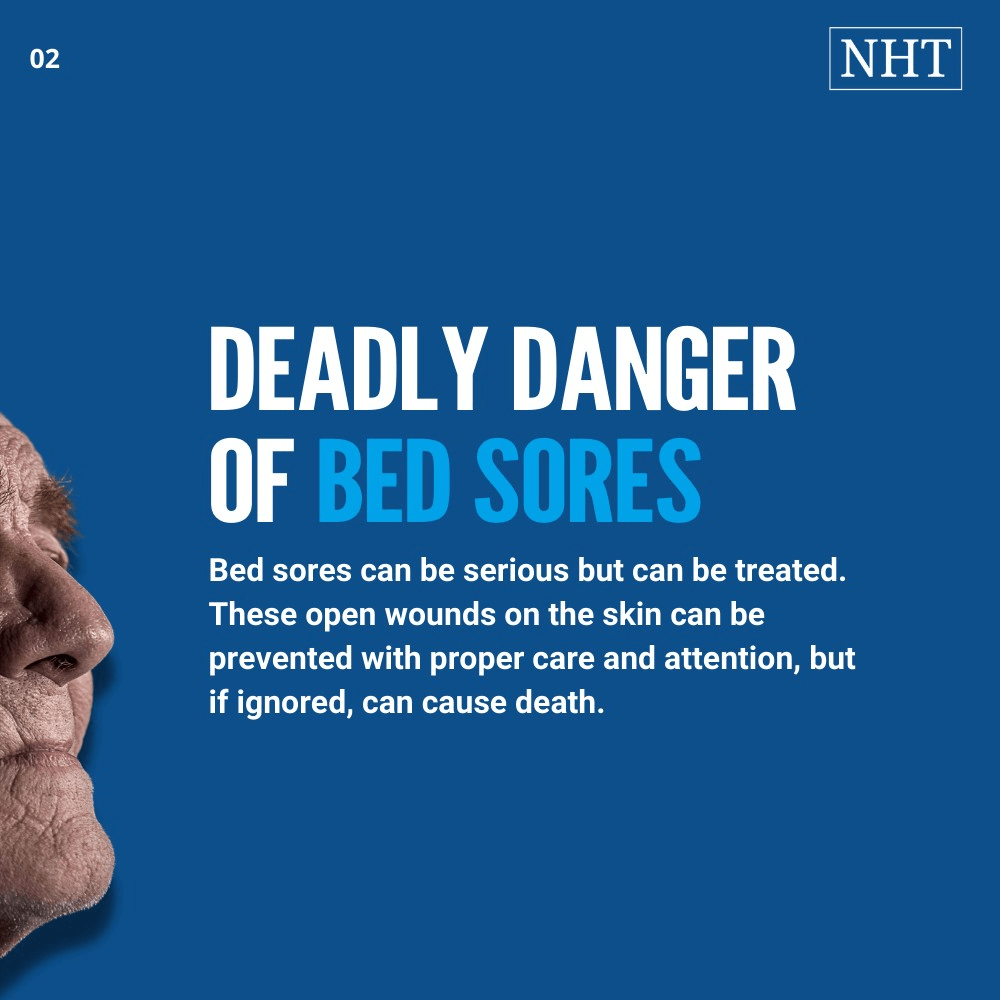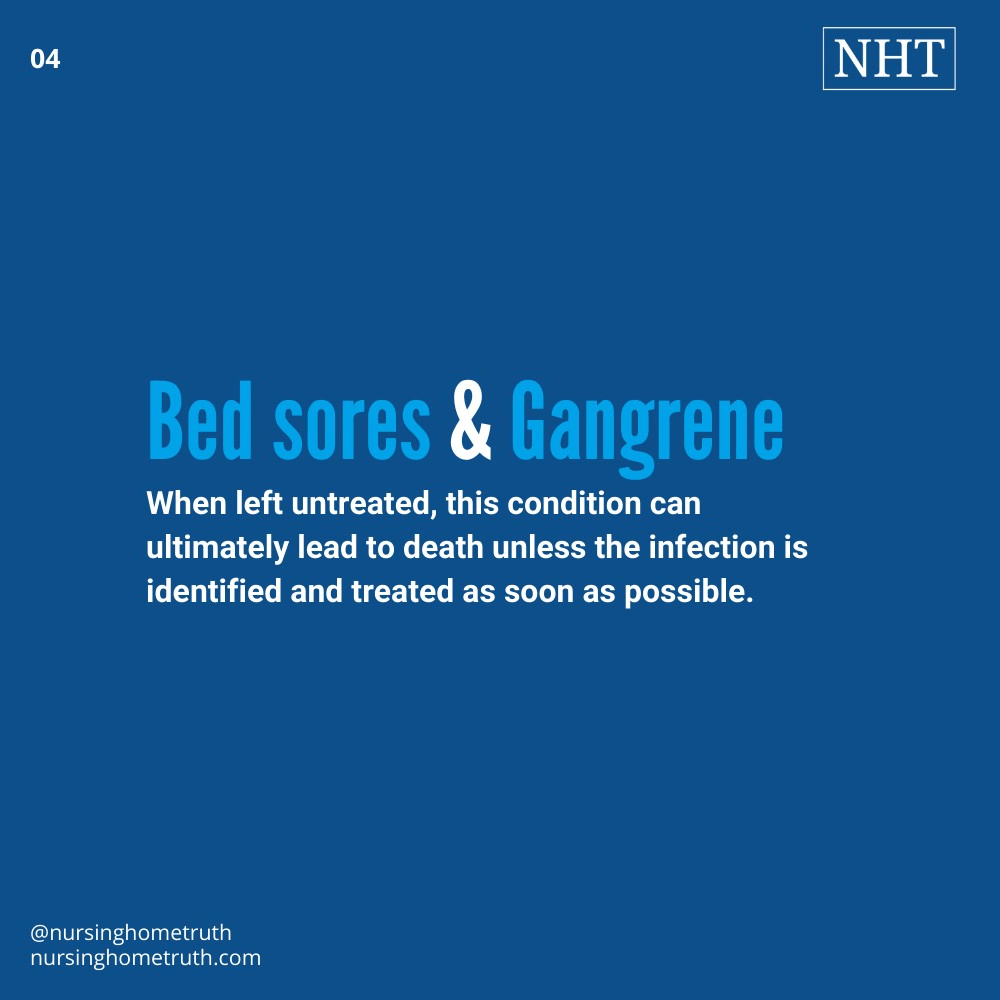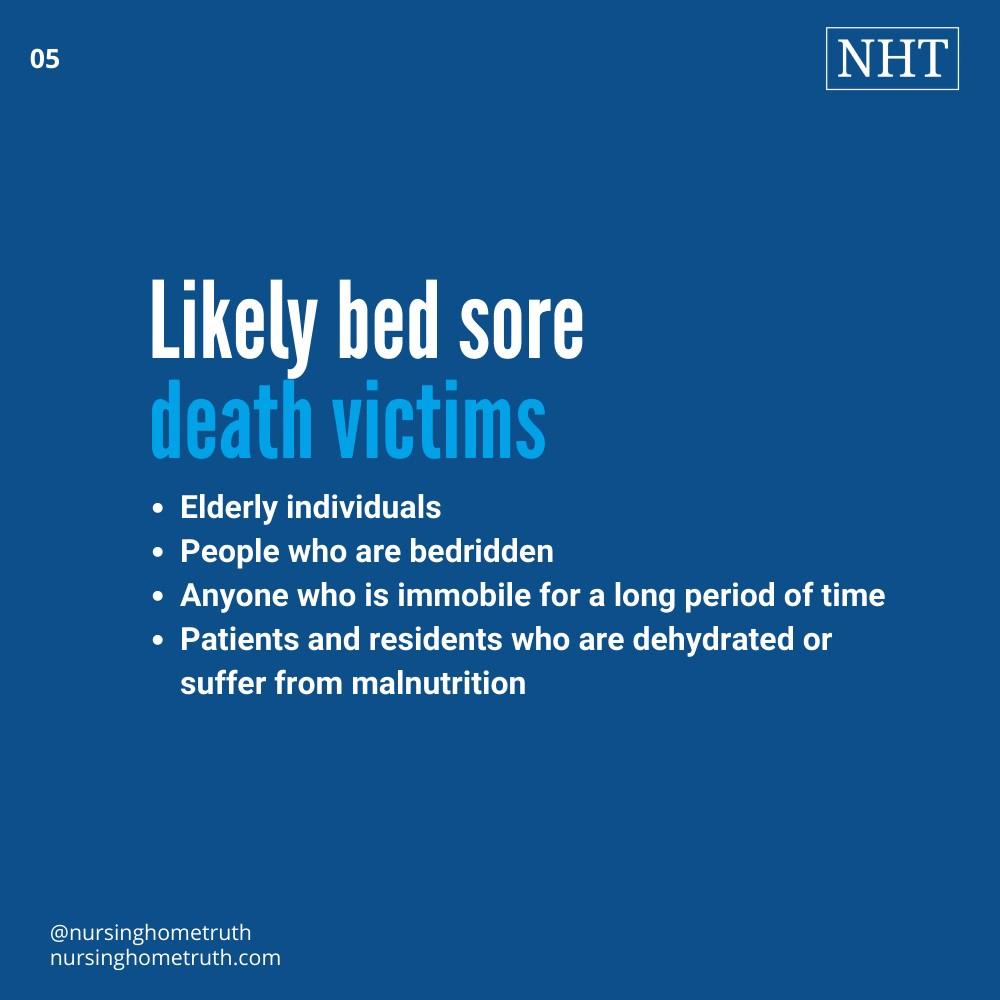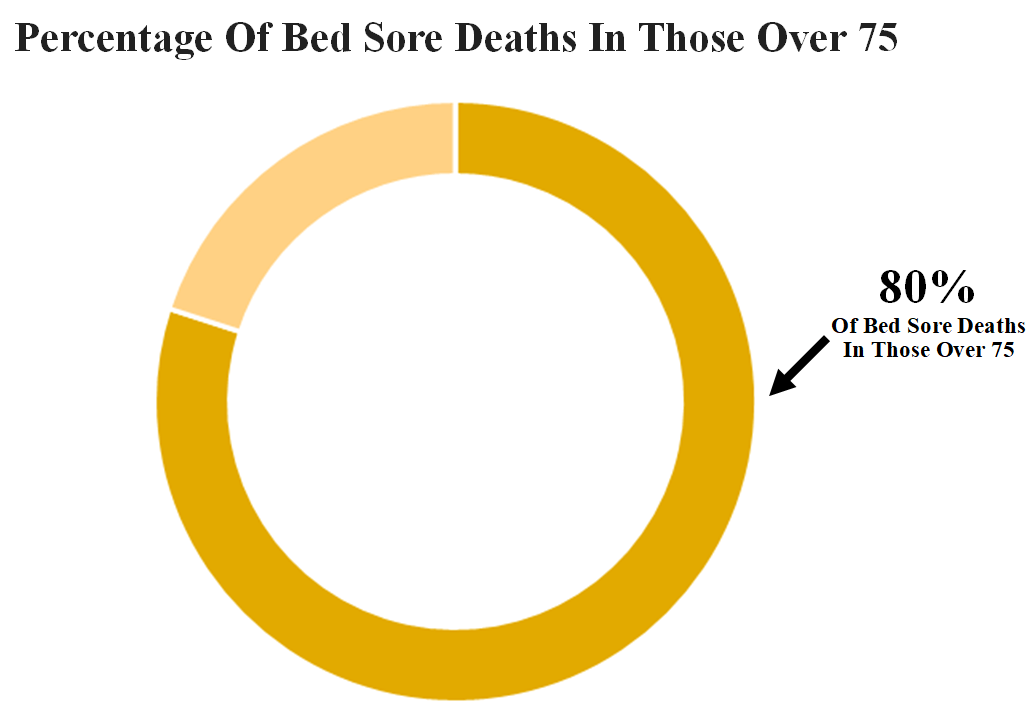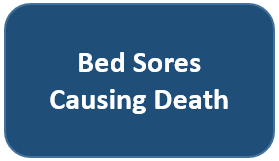Article Updated: February 8, 2022
Can You Die from Bed Sores ?
The short answer is yes, you can die from bed sores. But under what circumstances? How? And how can you tell if it was the bed sores or something else?
I have spoke with national Wound Care Certified nurses and doctors about this issue, and have litigated these claims on behalf of victims.
Below, I’ll share some basics about bed sore wrongful death claims. If you need more help after reviewing my research, send me an email or call me.
Clickable Table of Contents
Bed Sores Death Relationship
1 – Can Bedsores Lead to Death?
2 – How Often Do Bed Sores Lead to Death?
3 – Are Bedsores Typically the Cause of Death?
Bed Sores Death Claims
4 – Who is Likely to Die from Bed Sores
5 – Proving Bed Sores Lead to Death of Patient
6 – Suing a Nursing Home for a Bed Sores Death
Resources
7 – Bed Sores Death Legal Help
8 – Supporting Literature, Citations & Research
9 – About the Author
10 – Legal Help in Maryland & Nationally
Can Bedsores Lead to Death?
Deadly Danger of Bed Sores
Bed sores can be serious but do not have to be. These open wounds on the skin can be prevented with proper care and attention and when they are not, an otherwise simple wound can get out of control and lead to death.
The dangers of bed sores, therefore, should not be underestimated as an untreated wound can lead to a multitude of serious problems including gangrene, blood infections, amputations and death in severe cases.
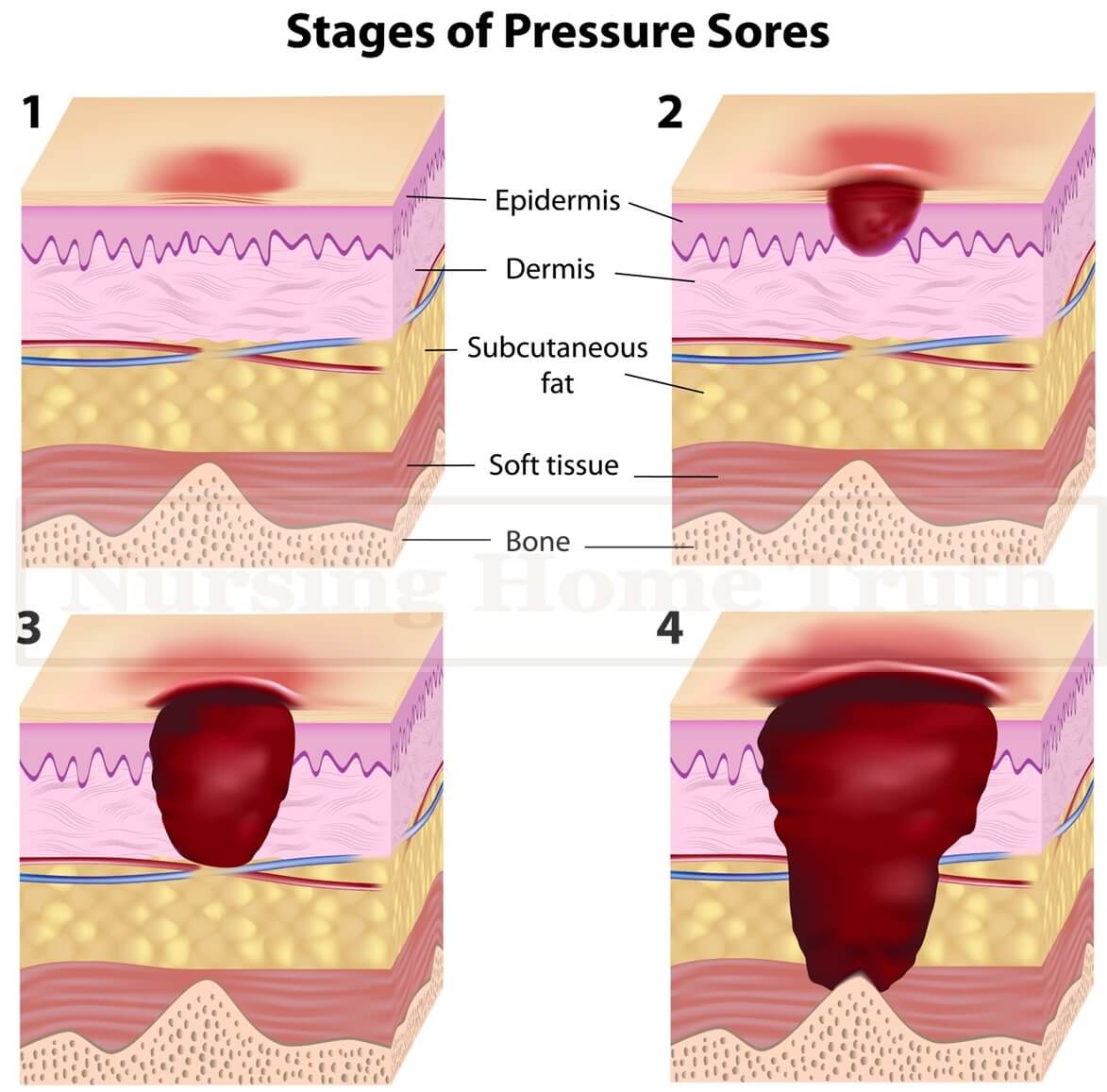
Deadly Bed Sores & Bacteria
When this happens, and a bed sore gets to a Stage III or Stage IV, conditions like necrotizing fasciitis eats away at the affected skin and the muscle of the area that is affected.
The condition can be so bad that it progresses within a few hours if left untreated. In severe cases, when this is not caught quickly enough, amputations are needed.
Bed Sores & Gangrene
Other conditions that can get out of hand with a bed sore and eventually lead to death include gangrene which comes as one of the most dangerous infections.
When left untreated, this condition can ultimately lead to death unless the infection is identified and treated as soon as possible.
How Often Do Bed Sores Lead to Death?
Statistical Likelihood of Bed Sore Deaths
Bed sore deaths are more common than many believe them to be. In nursing home and hospital settings bed sores are a major cause for both infection and death.
You can die from bed sores at a high rate and in a study of 20 years’ of data it was found that nearly 20% of deaths listed a pressure ulcer as an underlying reason for the death and, furthermore, that early 80% of pressure ulcer-associated deaths took place in those who were over 75 years of age.
Causes of High Bed Sore Deaths
One of the main reasons that pressure sores can lead to death is that blood poisoning or sepsis is often associated with a pressure sore that is not treated in a timely manner.
It is unsurprising then to see that blood poisoning was found in approximately 40% of pressure sore related death.
Other instances in which death associated with a bed sore is higher comes with illnesses such as Parkinson Disease, MS, Alzheimer Disease and osteoporosis.
Relation of Comorbidities & Bed Sore Deaths
Bed sores do lead to death and it is a combination of both the underlying conditions that place a person into the position of being bedridden or immobile for an extended period of time as well as the neglect of the bed sores which leads to additional conditions like blood poisoning which exasperate any recovery potential.
Are Bedsores Typically the Cause of Death?
Bed sore deaths are not usually brought on directly from a bed sore but the side effects that come from a bed sore.

Everything from hip fractures to spinal injuries can lead to long-term recovery that renders a person immobile and can result in bed sores and death.
The bed sores cause blood poisoning, deterioration of the skin and difficult to treat infections that even on their own can cause serious complications that cause death.
The rate of death for those who die from pressure injuries is quite high with more than half of those who develop one while in the hospital dying within 12 months of the pressure sore developing.
This means that when a person develops a pressure injury they are at higher risk of complications and infections that do result in death whether that death be directly related to the pressure injury or an underlying condition.
Bed sore deaths can be caused by the bedsore itself when it is not treated in time, or the bed sore can in conjunction with another illness cause death because of the difficulty in recovery when both the underlying original illness and the bed sore are present at the same time.
Who is Likely to Die from Bed Sores
Susceptibility to Dying from a Bed Sore
The people who are most likely to due from a bed sore are the elderly, those who are in constant laying down or sitting positions and those who are bedridden or immobile.
The less control an individual has over their movement, the higher the chance is that bed sores can lead to death in them.
Individuals who are bedridden or immobile are also at a higher rate of being neglected when in nursing homes and long-term medical care facilities because they wholly rely on nurses and medical care professionals for basic needs.
Amongst these basic needs are making sure that the individual has their diaper changed every few hours and that the person is turned into a new position every 2 hours so that bed sores do not develop.
When this does not happen the individual is neglected and becomes more prone to death from a bed sore.
Likely Bed Sore Death Victims
These are avoidable deaths that happen in the thousands every year. Individuals at highest rate of being affected are:
◊ Elderly individuals
◊ People who are bedridden
◊ Anyone who is immobile for a long period of time
◊ Patients and residents who are dehydrated or suffer from malnutrition
Those who are at a higher risk of death from bed sores are the ones who live in nursing homes, are in the hospital for a long period of time, or any other long-term care that needs them to lay down or sit down in the same position for an extended period of time putting pressure on the body.
Proving Bed Sores Lead to Death of Patient
Bed Sore Death Causation
Proving a bed sore deaths can be difficult at times because the bed sore on its own is not the most common cause of death. Rather, there are other factors in the causation chain that connect and prove that the bed sores caused the death of the victim.
Bed Sore Death Causation Factors
A bed sore can lead to death more frequently when there is a Stage III or Stage IV bed sore. The presence of either of these stages can be a big indication of neglect because a bed sore if identified and treated properly in Stage I or Stage II, should never develop into a higher stage.
If you or a loved one have a higher stage bed sore there should be a deep look into the practices of the care workers who were responsible for their well-being. If the patient was not repositioned every 2 hours per general medical expectations, then there is the potential to prove that the bed sore was preventable.
If the bed sore was preventable and is at a Stage III or Stage IV and the patient suffered blood poisoning from the infection or a bone infections, there can be a strong correlation made between the bed sore, its preventability and the death of the patient.
If it can be proven that bed sore caused the serious infection and complications that killed an individual, there is a stronger possibility of proving the bed sore was what led to the death.
Suing a Nursing Home for a Bed Sores Death
You can die from a bed sore and you can also sue a nursing home for a bed sore especially when you can show that there was neglect.
Nursing homes and hospitals know that they must reposition a bedridden or immobile patient every 2 hours to a new position.
When they fail to do this, they increase the potential for a patient to develop a serious bed sore.
These serious bed sores affect death because they increase the possibility for infections and conditions that quickly deteriorate health.
Suing a nursing home is possible because bed sores can be prevented in many cases and when they present in a serious manner this means that the required level of attention and care that should have been given, was not given.
Bed Sores Death Legal Help
In order to effectively sue a nursing home or hospital for a bed sore death, it is vital to understand the expectations of nursing care are, what medical standards they are required to follow by law, and how hiring practices, training and oversight as well as staffing affect prevalence of nursing home deaths from bed sires.
As an experienced bed sore and nursing home lawyer can figure this out fairly easily for you, once they have all the necessary evidence.
In terms of experience, I have investigated and litigated 100+ bed sore cases, including several dozen where the bed sore was the main culprit for having caused the death of the patient or nursing home resident.
If you’d like me to help with an investigation for you or anyone you know, just send me an email or call me.
Warmly,
Reza Davani, Esq.
State Bar No.: #1212110211
Federal Bar No.: #30168
Cellphone: (301) 922-4598
Email: reza@nursinghometruth.com
Pressure Ulcer Legal Library
Click/Tap Icons to Access Articles

Supporting Literature, Citations & Resources:
Bennett, D. (2012). Elder abuse and death claims. Clinical Risk, 18(5), 194-196.
González‐Méndez, M. I., Lima‐Serrano, M., Martín‐Castaño, C., Alonso‐Araujo, I., & Lima‐Rodríguez, J. S. (2018). Incidence and risk factors associated with the development of pressure ulcers in an intensive care unit. Journal of clinical nursing, 27(5-6), 1028-1037.
Boereboom, F. T., Raymakers, J. A., & Duursma, S. A. (1992). Mortality and causes of death after hip fractures in The Netherlands. The Netherlands journal of medicine, 41(1-2), 4-10.
Kane, E. (2018). Can Bed Sores Lead To Death? Tips On Preventing Pressure Ulcers. Senior Safety Advice
Redelings, M. D., Lee, N. E., & Sorvillo, F. (2005). Pressure ulcers: more lethal than we thought?. Advances in skin & wound care, 18(7), 367-372.
Kirman, C.N. (2020). What is the mortality rate for pressure injuries (pressure ulcers)? Medscape.
About the Author
This nursing home and medical malpractice article was written by Baltimore, Maryland nursing home attorney Reza Davani, Esquire. Mr. Davani received his Juris Doctor degree from a Tier 1 law school, the University of Maryland Francs King Carey School of Law. He received his first license to practice law from the State of Maryland’s Court of Appeals (MD State License No. 1212110211), and just four months later received a federal law license from the United States District Court for the District of Maryland (Federal License No. 30168).
Mr. Davani has been practicing law for over 10 years. He began practicing law by helping clients as a sanctioned student lawyer before receiving his law license, and second chaired his first jury trial in federal court before even graduating law school. He is a registered member of the Maryland Association for Justice (MAJ), the American Bar Association (ABA), the American Association for Justice (AAJ), and was formerly on the MAJ’s Legislative Leader’s Circle.
Mr. Davani has taken over 20 cases to trial in state and federal court, and favorably settled well over 100 cases for injured victims. He has personally helped his clients recover over $15,000,000 in personal injury, medical malpractice, and nursing home abuse settlements and verdicts in Maryland and other states. He is dedicated to fighting for justice, and welcomes the opportunity to help you.
Bed Sores Wrongful Death Lawyer Near You in Baltimore, Maryland, Helping Clients Nationally
I can help you anywhere in Maryland, including Allegany County, Anne Arundel County, Baltimore City, Baltimore County, Carroll County, Calvert County, Caroline County, Cecil County, Charles County, Dorchester County, Frederick County, Garrett County, Harford County, Howard County, Kent County, Montgomery County, Prince George’s County, Queen Anne’s County, Somerset County, St. Mary’s County, Talbot County, Washington County, Wicomico County, and Worcester County.
I have helped clients in over a dozen jurisdictions, including California, Delaware, District of Columbia, Georgia, Illinois, Iowa, Massachusetts, Maryland, Mississippi, New Jersey, New Mexico, New York, North Carolina, Pennsylvania, South Carolina, Washington, and Virginia.
I help injured victims nationwide in all 50 states on a case-by-case basis via Pro Hac Vice.



